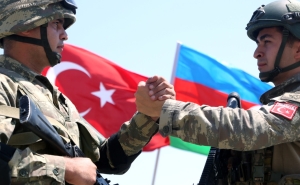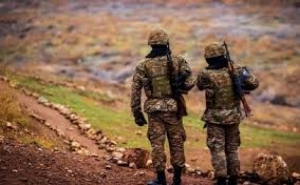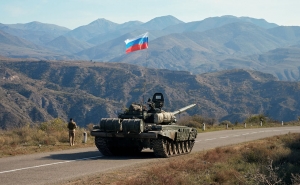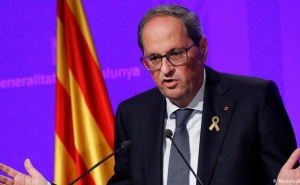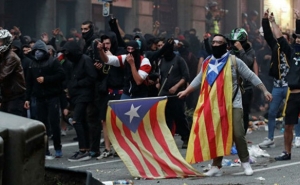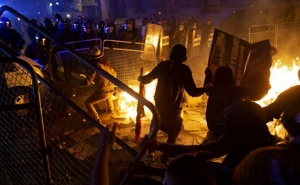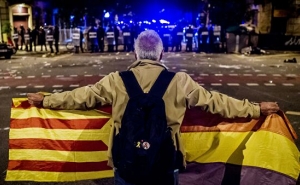 Catalonia, Iraqi Kurdistan, Artsakh: Are Parallels Appropriate?
Catalonia, Iraqi Kurdistan, Artsakh: Are Parallels Appropriate?
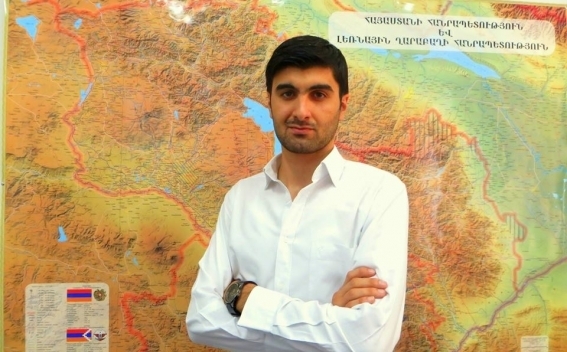
The referendums held in Catalonia and Iraqi Kurdistan have caused different interpretations, including parallels with the Artsakh self-determination process. First of all it is necessary to state clearly that the self-determination of any unit is unique, conditioned by a number of objective and subjective factors, and even some similarities are not enough yet for comparison of different processes.
In connection with the referendums in Catalonia and Iraqi Kurdistan, as well as with the process of self-determination of Artsakh, several aspects can be noted:
1. The referendums held in Catalonia and Iraqi Kurdistan again updated the topic of self-determination on the international agenda. All this can not have a direct impact on the NKR or the Karabakh conflict. However, the existing background and the existing interest of the international community provide a good opportunity for the organization of awareness campaigns on the Artsakh people's self-determination process.
2. Against the background of the processes of self-determination of both Catalonia and Iraqi Kurdistan, the struggle of the people of Artsakh for the right of self-determination becomes more than understandable. Unlike the Catalans living in Spain, which is a typical model of Western democracy, where there are never any problems related to the protection of the people’s rights and, unlike the Kurds of Iraqi Kurdistan, who in 2005 gained from Baghdad broad autonomy and in certain cases even fulfill the functions of the central authorities, the population of the Nagorno-Karabakh Autonomous Region, which was a part of Soviet Azerbaijan, was constantly subjected to discrimination. Moreover, Baku consistently implemented a policy of ousting Armenians from the homeland. Of course, under such conditions, the process of self-determination becomes more than understandable and logical; moreover, it becomes the guarantor of physical security. It is also significant that after the independence of Azerbaijan, the anti-Armenian policy gained a new impetus, and the spread of intolerance towards Armenians acquired an organized character.
3. As for the parallels between the referendums in Catalonia, Iraqi Kurdistan and the referendum held in Artsakh in 1991, it can be definitely argued that the legal basis of the referendum in Artsakh and its process are incomparably strong. The referendum in Catalonia has problems not only related to its legitimacy, but also with voter turnout (less than half of the eligible voters participated in the referendum), with organizational issues. As for the referendum in Iraqi Kurdistan, the process of its organization is rather controversial, since the terms of offices of both the government and the parliament has long ago been over (the authorities justified postponing the elections by fighting with the terrorist organization Islamic State ). In addition, many cases of gross election offences were recorded during the referendum voting.
Summarizing, it can be noted that the referendums in Catalonia and Iraqi Kurdistan, regardless of the results, are a very important millstones for self-determination of those two units, and, of course, change both the nature of these processes and international perceptions.
-
 17:08
17:08The regular session of the Anti-corruption Policy Council takes place in Jermuk
-
 15:05
15:05The Prime Minister sends congratulatory messages to the supreme leader of Iran and the President of Iran
-
 11:11
11:11Armenia sends earthquake aid to Turkey
-
 10:43
10:43Commemoration of the Pontiff St. Sahak Partev
-
 09:16
09:16Some roads are closed and difficult to pass in Armenia
-
 19:55
19:55Phone conversation of the Foreign Minister of Armenia with the U.S. Assistant Secretary of State for European and Eurasian Affairs
-
 18:30
18:30Prime Minister Pashinyan and President Khachaturyan meet
-
 18:20
18:20Ararat Mirzoyan with Co-Chairman of the OSCE Minsk Group of France Brice Roquefeuil
-
 17:01
17:01Humans could land on Mars within 10 years, Musk predicts
-
 16:45
16:45France, US urge 'immediate' end to Nagorno Karabakh blockade
-
 16:01
16:01Blockaded Nagorno Karabakh launches fundraiser to support quake-hit Syria
-
 15:59
15:59Earthquake death toll in Turkey rises to 18,342
-
 15:43
15:43Ararat Mirzoyan Held a Telephone Conversation with Sergey Lavrov
-
 15:06
15:06French president rules out fighter jet supplies to Ukraine in near future
-
 14:47
14:475 Day Weather Forecast in Armenia
-
 14:44
14:44President Vahagn Khachaturyan wrote a note in the book of condolences opened in the Embassy of Syria in Armenia
-
 14:20
14:20Azerbaijan’s provocations impede establishment of peace and stability – Armenian FM tells Russian Co-Chair of OSCE MG
-
 12:57
12:57France representation to OSCE: Paris calls on Azerbaijan to restore freedom of movement through Lachin corridor
-
 11:40
11:40Command of Kosovo forces highly appreciated preparation of Armenian peacekeepers
-
 10:16
10:16The United States withdrew from sanctions against Syria for six months the provision of assistance after the earthquake
day
week
month
Humidity: %
Wind: km/h


